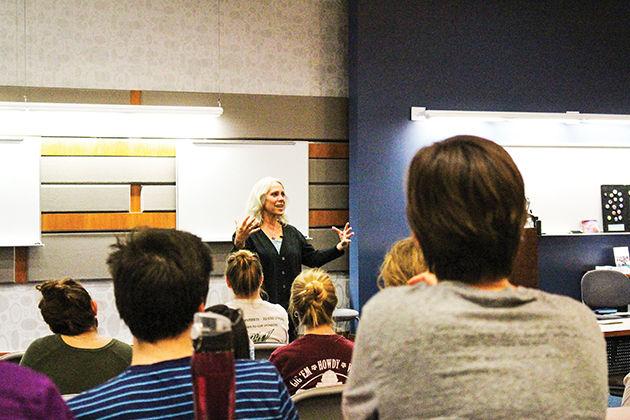A view on sexuality beyond dipole genders took center-stage Wednesday evening, as teacher, writer and activist Robyn Ochs spoke to students at the Interdisciplinary Life Science Building auditorium.
In her presentation “Beyond Binaries: Identity and Sexuality,”Ochs said she believes sexual identity cannot be defined into fixed areas or categories. Instead she believes each person is unique and that each person has their own unique sexual identity as a result.
“Human beings are really complicated,” Ochs said. “So we try to take really complicated things and squeeze them into different boxes, or categories, in order to make it seem like we have some control over these complicated things. I believe that human beings are too complicated to ever fit neatly into the kinds of categories that we try to establish.”
Ochs began her presentation by describing the various ways people have defined sexuality in the past.
Ochs also discussed two other models of sexual identity: the “Klein Sexual Orientation Grid” and the “Storms Sexuality Axis.” The “Storms Sexuality Axis” recognizes people who are asexual. Ochs said she believes these models are still limiting.
People have unique combinations of sexual desire, sexual orientation, romantic orientation, and outlooks on sexuality that constantly change throughout one’s life, Ochs said.
“We each have a sexual orientation, of some sort, we each have a gender identity but we also have lots of other identities,” Ochs said. “That different combination of identities gives us a very specific experience of being ourselves.”
Ochs had each member of the audience fill out a short anonymous questionnaire that asked questions concerning sexual identity, then randomly distributed them back into the audience. Members of the audience were separated into seven different groups depending on the answers that were given.
Two of the seven groups were completely homosexual or heterosexual while the rest had varying degrees of bisexuality. The activity aimed to show how unique each individual was and how they could not be confined to one particular category. Ochs said the reality of sexual identities is very complex.
“I call myself bisexual because I acknowledge that I have the potential to be attracted romantically and/or sexually to people of more than one sex and/or gender, not necessarily at the same time, not necessarily in the same way, and not necessarily to the same degree,” Ochs said.









